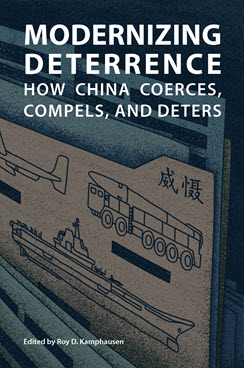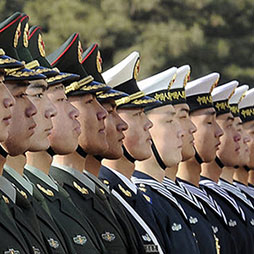When and How China De-escalates in Crises
This chapter demonstrates how a pattern of Chinese de-escalation has unfolded in several crises and discusses what it might take for China to move beyond this pattern and engage in riskier behavior.
EXECUTIVE SUMMARY
MAIN ARGUMENT
Since the Sino-Vietnamese clash in the Spratlys in 1988, none of China’s foreign policy crises have escalated to actual warfare. One reason is that China has maintained good working relations with all relevant great powers (the U.S., Japan, and Russia). Another is a pattern of Chinese de-escalation when meeting with strong resistance. Since 2000, the Chinese economy has become the main driver of global industrial growth. China has used its new prosperity to build the world’s second strongest military while shifting to a policy of assertiveness, building a strategic partnership with Russia, and engaging in a power rivalry with the U.S. This has led to several crises where China has stuck to its pattern of backtracking in the face of resistance. If a crisis escalates to a point where Beijing sees a risk of armed confrontation, it ceases to act offensively. De-escalation may involve talks with the adversary, but it rarely involves any genuine concessions. China pushes its position forward until it meets determined resistance, then de-escalates, which often consists in refraining from further assertive moves and is sometimes accompanied by heavy rhetorical attacks on the adversary. This raises the question of what might lead China to depart from this precedent and engage in riskier behavior during a crisis.
POLICY IMPLICATIONS
- China should take up again its “good neighbor policy,” given that the best way for China to strengthen its nonhegemonic regional influence is to reassure its neighbors.
- Neighboring countries should collaborate to persuade China to negotiate its maritime boundaries on the basis of international law.
- In crisis situations the U.S. should act in a predictable and decisive way, blocking unacceptably assertive Chinese actions but leaving room for China to quietly de-escalate. To this end, the U.S. should disassociate its conflict management from any rhetorical attacks against China’s authoritarian regime.
Stein Tønnesson is a Research Professor Emeritus at the Peace Research Institute Oslo (PRIO), where he served as director from 2001 to 2009.



